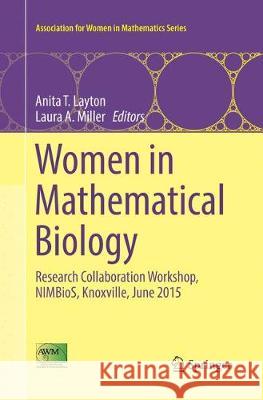Women in Mathematical Biology: Research Collaboration Workshop, Nimbios, Knoxville, June 2015 » książka
topmenu
Women in Mathematical Biology: Research Collaboration Workshop, Nimbios, Knoxville, June 2015
ISBN-13: 9783319868318 / Angielski / Miękka / 2018 / 252 str.
Kategorie:
Kategorie BISAC:
Wydawca:
Springer
Seria wydawnicza:
Język:
Angielski
ISBN-13:
9783319868318
Rok wydania:
2018
Wydanie:
Softcover Repri
Ilość stron:
252
Oprawa:
Miękka
Wolumenów:
01











